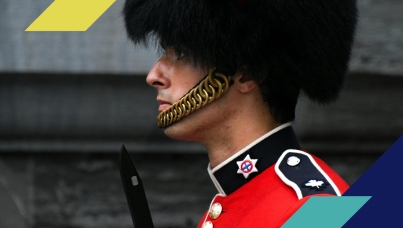BC Political Scene
This BC Ipsos-Reid poll is based on the BC Reid Express provincial omnibus telephone survey conducted between December 4th and 10th, 2001 among a representative cross-section of 800 British Columbian adults. These data are statistically weighted to ensure the sample's regional, age and sex composition reflects that of the actual BC population according to 1996 Census data. With a provincial sample of 800, one can say with 95 percent certainty that the overall results are within +3.5 percentage points of what they would have been had the entire adult BC population been polled. The margin of error will be larger for other sub-groupings of the survey population.
(Vancouver, BC - December 19th, 2001) - In this quarter's BC Reid Express poll on BC's political scene, taken six months into the BC Liberal's mandate, Ipsos-Reid finds British Columbians considerably less enchanted with the governing Liberals than was the case following the party's first 90 days in office. Indeed, approval ratings for the government overall have fallen dramatically over the past 3 months (71% in September to 49% currently). And, the BC population is much less satisfied with Gordon Campbell's performance as Premier (70% approval, down to 51%). As a result, perhaps, support for the Liberals has dropped 12 points since September (62% in September to 50% currently). While other parties still trail the Liberals by a wide margin, all have made gains at the expense of the governing party. NDP support has jumped 6 points, back to the level of support it won in the May 2001 election (15% to 21%); support for Unity BC has almost tripled (3% to 8%); and Green party support has inched up 3 points (14% to 17%).
Despite the steep drop in Liberal support, however, British Columbians still seem prepared to stand behind the new government as it moves to implement its policy agenda; almost 6-in-10 (57%) is either satisfied with the amount of change the government is pursuing or feel it's not going far enough. However, 40% believe the Liberals are going too far.
"This is a clear sign that Liberal government actions since taking power have started to raise eyebrows across the province. British Columbians voted massively to kick out the NDP, and supported the Liberal's agenda for change. Now that change is underway, a portion of the BC public appears reluctant to fully embrace the results," observes Daniel Savas, Senior Vice-President with Ipsos-Reid in Vancouver. "However, there are two things to note. First, a drop in support for any government following an election victory is a normal occurrence. This is especially true with a government at 70% approval; it was somewhat unrealistic to expect the Liberals to sustain the unprecedented high levels of support they've enjoyed since their election victory. Therefore, the drop in support cannot be viewed as a rejection of Liberal policy. In fact, the numbers suggest the public is still broadly supportive of what the government is trying to do. Secondly, however, while the drop in support for the Liberals may have been predictable, the size of the drop in approval ratings is important; to experience a 20-point drop in approval ratings is dramatic at any time, and by any measure. It's significant here, because it shows there may be some cracks starting to form in the otherwise solid Liberal veneer. With 40% of British Columbians now critical of what the Liberals are doing, there's fertile ground for building a potentially loud opposition voice that can't be ignored. We'll have to wait and see if the Liberals can be as effective at managing public opinion as they have been at keeping their promises and implementing their policy agenda."
BC LIBERAL GOVERNMENT'S APPROVAL RATING PLUMMETS 22 POINTS (71% TO 49%) SINCE SEPTEMBER
The BC Liberal government's approval rating has plummeted a dramatic 22 percentage points since September, indicating British Columbians are much less enchanted with the BC Liberal government than was the case just 3 months ago. Currently, 49% of the BC population approves of the Liberal performance since their May election victory, down from 71% in September. Meanwhile, disapproval with the government's performance has jumped to 48%, up from 26% earlier this fall. Overall, British Columbians are quite divided in their reactions to the way the Liberals have been governing the province since the election; this is a significant shift in public opinion from the wave of positive reviews the Liberals enjoyed during their first 3 months in power.
Mixed assessments of the BC Liberal government's performance are quite consistent across all regions of the province, and among various population segments. There are, nonetheless some groups that stand out:
- Approval ratings are strongest in the suburban Lower Mainland (54%) and the Interior/North (53%), and are significantly weaker on Vancouver Island (36%). Fully 59% of Island residents disapprove of the Liberal government's performance since May of this year.
- Men are more likely than women to approve of the government (56% vs. 43%).
- British Columbians living in non-union households (54%) are more inclined to approve of the government than people in union households (41%).
- BC residents with middle to high annual household incomes (52% and 55%, respectively) are significantly more likely to approve of the government's performance than those whose annual household income is less than $30,000 (34%).
PREMIER CAMPBELL'S APPROVAL RATING FALLS 19 POINTS IN THREE MONTHS (70% TO 51%); NDP LEADER McPHAIL MAKES NO GAINS (41% TO 39%)
The BC public is much less enthused with Gordon Campbell's performance as Premier, with far fewer approving of the job he's doing than was the case 3 months ago. While Campbell still enjoys the support of 51% of British Columbians, his approval rating has dropped a significant 19 points since September when 70% approved of his performance as Premier. Meanwhile, 46% now disapprove of the job he's doing, up 19 points from an Ipsos-Reid poll conducted earlier this fall (27%). Overall, the BC public is quite divided in their assessment of the job Campbell is doing as Premier (51% approve vs. 46% disapprove).
Despite Campbell's drop in popularity, NDP leader Joy McPhail has not made up any ground on the Liberal Premier. Currently 39% approve of McPhail's performance as Opposition Leader, while 42% disapprove. The public's evaluation of McPhail is virtually unchanged from September (41% approve).
Assessments of party leaders with representation in the BC Legislature are quite consistent across all regions of the province, and among various population segments. There are, nonetheless some groups that stand out:
- Regionally, Gordon Campbell's approval ratings are consistent with the overall provincial rating, with no statistically significant differences of opinion in the different regions.
- Among population segments: men are more likely than women to approve of Campbell (56% vs. 45%); British Columbians living in non-union households (55%) approve of Campbell's performance more so than do people in union households (45%); residents with middle to high annual household incomes (55% and 56%, respectively) are significantly more likely to approve of the government's performance than those with low annual household incomes (36%); younger British Columbians (18-34) are more inclined to approve of Campbell (56%) than are those who are 55 years of age or more (45%).
- NDP leader Joy McPhail enjoys more positive reviews among Vancouver/Burnaby residents (53%), and individuals with a university degree (48%).
- Both party leaders enjoy strong support among those who voted for their parties in the May 2001 election: 81% of Liberals approve of Campbell; 77% of New Democrats approve of McPhail.
BC LIBERAL SUPPORT DROPS 12 POINTS (62% TO 50%), BENEFITS NDP (15% TO 21%), UNITY BC (3% TO 8%), AND GREEN PARTY (14% TO 17%)
Support for the governing BC Liberals among decided voters has dropped a significant 12 percentage points over the past three months, moving from a post-election high of 62% in September to the current 50% level. While the Liberals continue to outdistance all other parties, both the NDP and Unity BC have benefited from Liberal losses this quarter. NDP support has moved up 6 points, from 15% to 21%, close to the party's election result (22%); and support for Unity BC has almost tripled, moving from 3% to 8% in just three months. Meanwhile, the BC Green party's standing has inched up 3 points, from 14% to 17%. In all, a total of 14% of British Columbians are uncommitted to any political party; this is up 6 points since September.
Party preference results for regional and socio-demographic groupings are as follows:
- The BC Liberals are strongest in the suburban Lower Mainland (57%), and the Interior/North (53%). The party's weakest support is on Vancouver Island (39%) where its lead over the NDP (27%) and the Green party (26%) is not as substantial. The Liberals are also more strongly supported by men (55% vs. 45% women), non-union households (54% vs. 44% union), and upper/middle income households (54% vs. 36% lower income)
- The NDP enjoys greatest support among Vancouver Island (27%) and Vancouver/Burnaby (25%) residents. They also have a greater following among union households (26% vs. 19% non-union).
- The Green party obtains its strongest support from Vancouver Island (26%) and Vancouver/Burnaby (23%) residents, and from individuals with lower annual household incomes (26% vs. 11% middle income).
MOST BRITISH COLUMBIANS STILL SUPPORT LIBERAL AGENDA FOR CHANGE (57%), BUT SOLID OPPOSITION VOICE PRESENT (40%)
Despite being much less enthusiastic in their support for the BC Liberal government, and Premier Campbell, British Columbians are still broadly supportive of the amount of change the Liberals are bringing to the province, though a significant opposition voice is present. Currently, 57% of the BC population feels the initiatives and actions of the government are "about right" (38%) or do "not go far enough" (18%). However, fully 40% think the government is "going too far".
The opposition voice is most loudly heard among the following population segments: Vancouver Island (53%) and Vancouver/Burnaby (46%) residents, women (46% vs. 35% men), middle-aged/older British Columbians (47% vs. 29% of 18-34 year olds), individuals in public sector union households (52% vs. 42% private sector union households, and 37% non-union households).
-
- 30 -
For more information on this news release, please contact:
Daniel Savas
Senior Vice-President
Ipsos-Reid
(604) 893-1610



